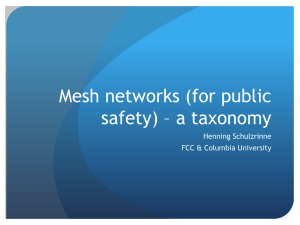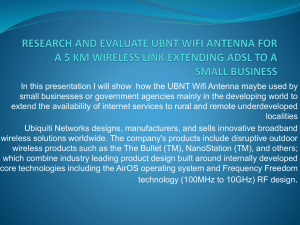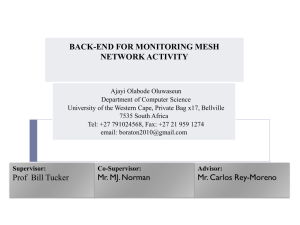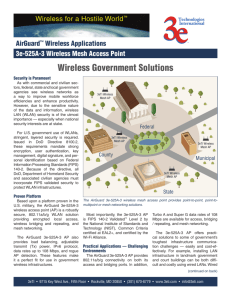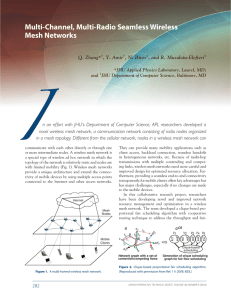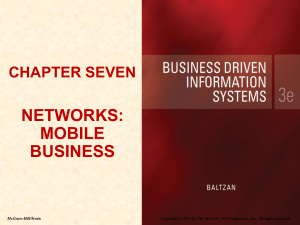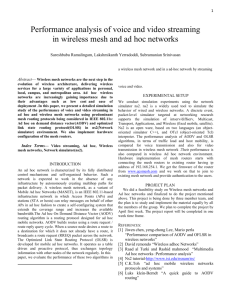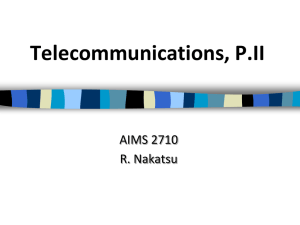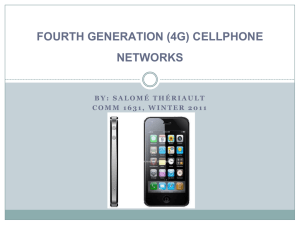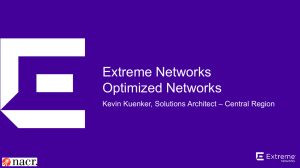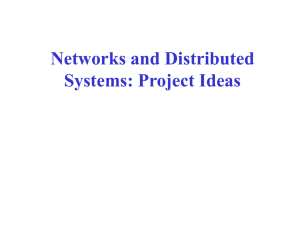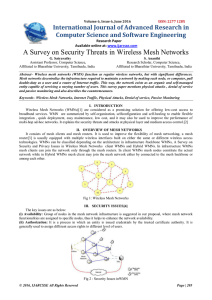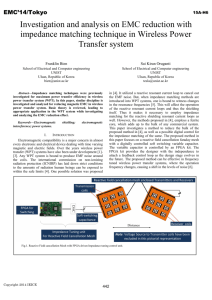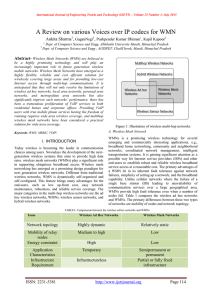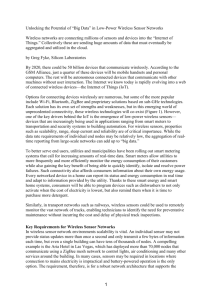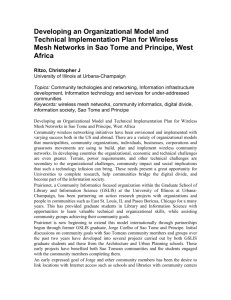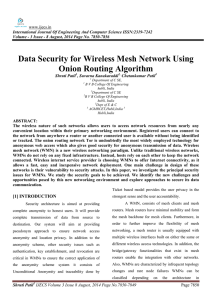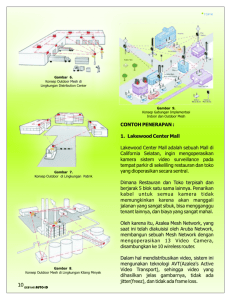Wireless Mesh Networks
advertisement
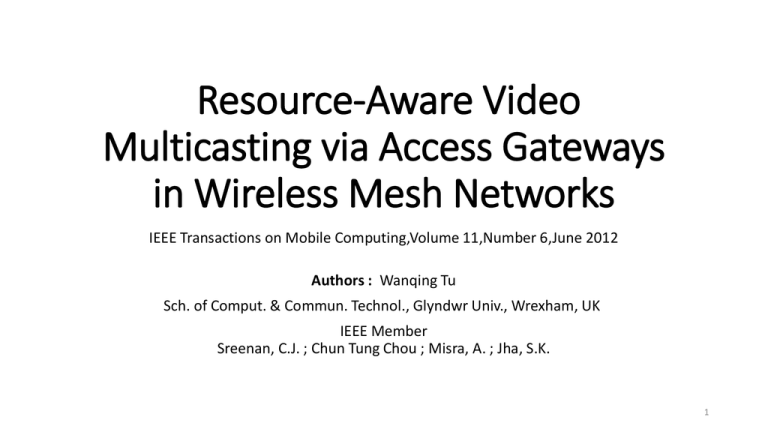
Resource-Aware Video Multicasting via Access Gateways in Wireless Mesh Networks IEEE Transactions on Mobile Computing,Volume 11,Number 6,June 2012 Authors : Wanqing Tu Sch. of Comput. & Commun. Technol., Glyndwr Univ., Wrexham, UK IEEE Member Sreenan, C.J. ; Chun Tung Chou ; Misra, A. ; Jha, S.K. 1 Outline • Introduction • Wireless Mesh Networks • Problem • Two-tier integrated architecture • Link-controlled routing tree • Conclusion 2 Introduction • Video streaming represents one of the fastest growing segments of traffic in the Internet today. • Multicasting of video over wireless networks is a challenging problem, due to the combination of high data rates (relative to wireless capacity) and low-latency constraints and the need to support multiple receivers with time-varying link quality. 3 Wireless Mesh Networks • Wireless mesh networks (WMNs) offer an attractive solution for lowcost connectivity over large urban areas. • A WMN consists of a set of mesh nodes offering connectivity to end user devices; the mesh nodes form a relatively static, multi-hop wireless backbone. 4 Problem 5 Problem 6 Two-tier integrated architecture 7 Two-tier integrated architecture 8 Two-tier integrated architecture Uploading Gateway 9 Two-tier integrated architecture 10 Link-controlled routing tree 11 Conclusion • The paper described and studied a resource-aware multi gateway video multicasting framework for WMNs that reduces the negative impacts of multiple wireless hops by judiciously employing highcapacity wired Internet shortcuts. • The two-tier integrated architecture algorithm chooses communication paths—intramesh paths or integrated paths— between nodes by organizing them into a clustered and layered architecture. 12 Conclusion • Link-controlled routing tree algorithm decreases interference from parallel multicasting by constructing a multicast tree with the least number of forwarders in each access area 13
